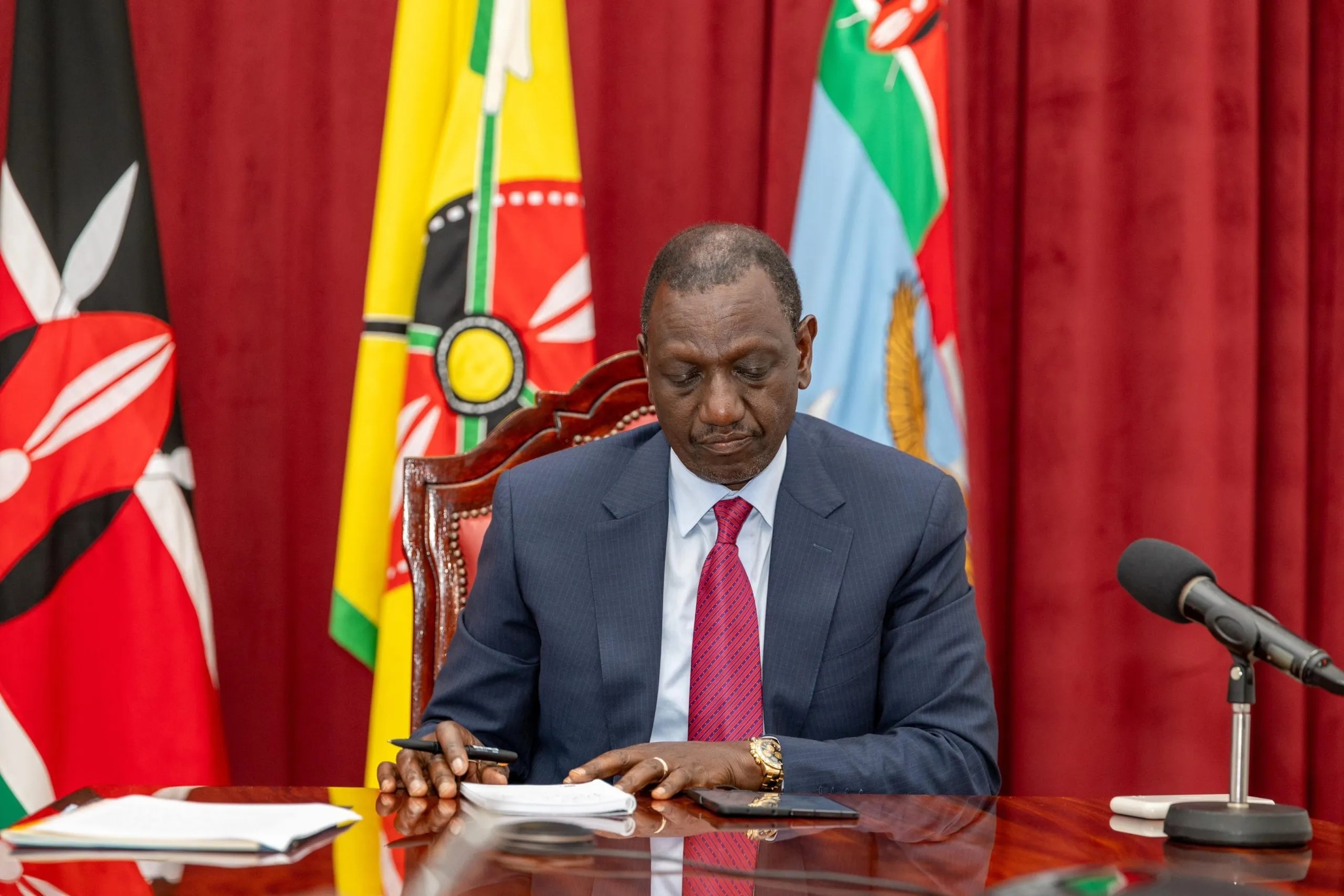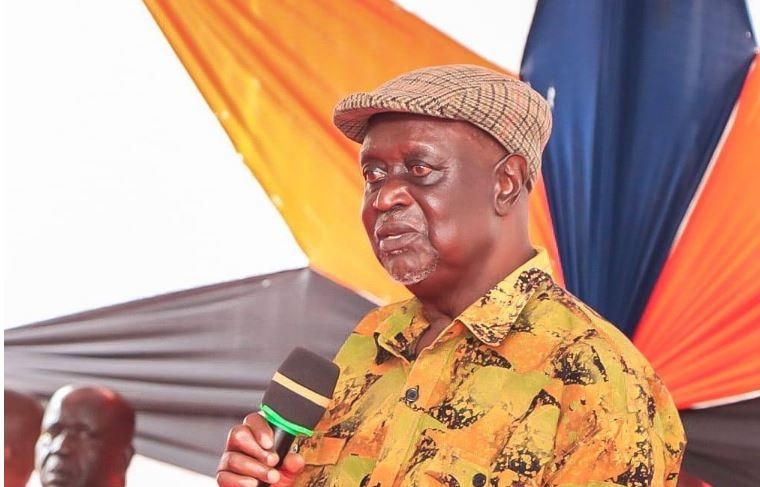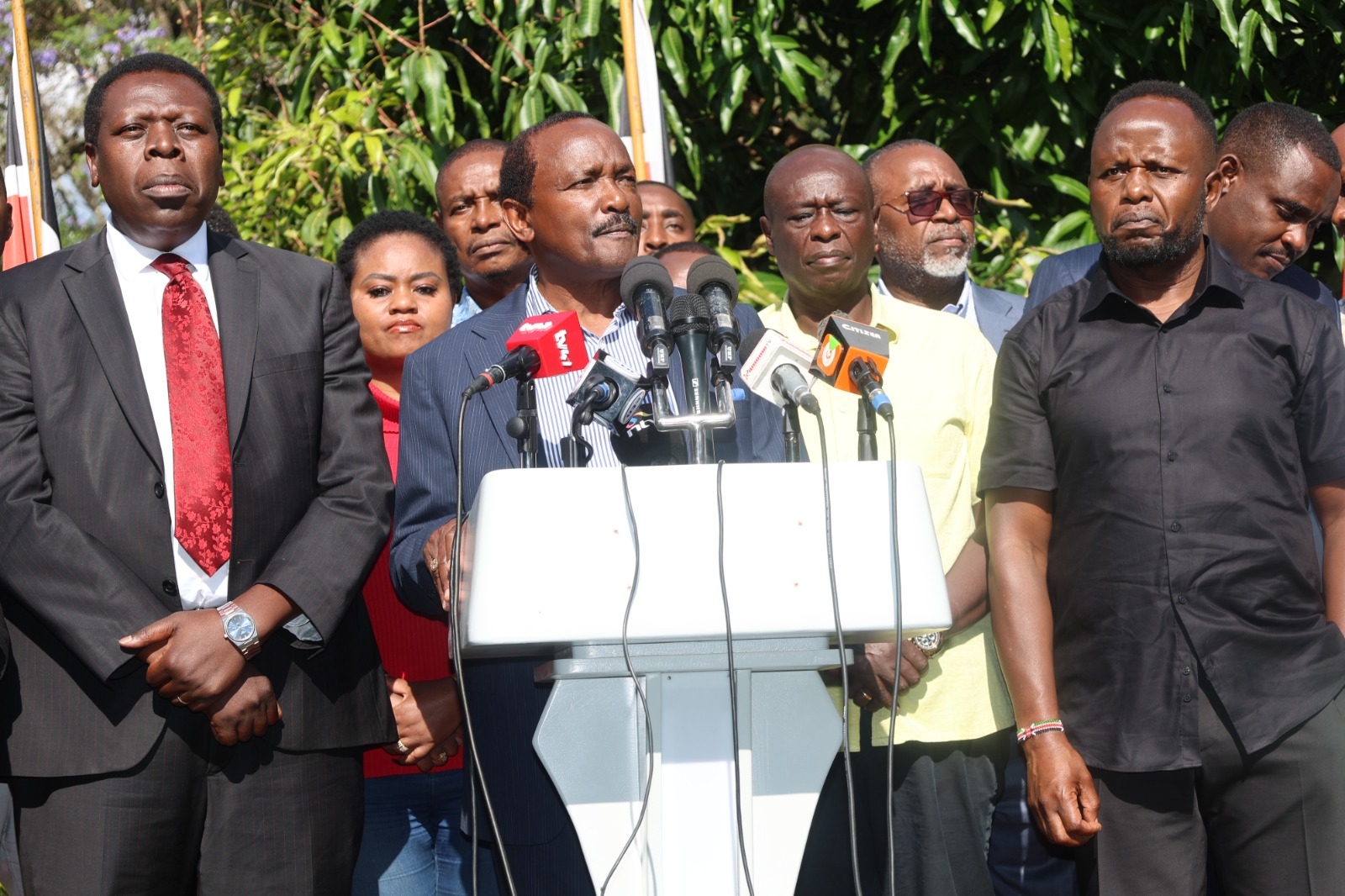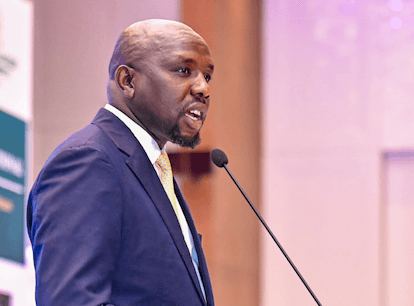The National Assembly Committee on Administration and Internal Security and the Senate Standing Committee on National Security, Defence and Foreign Relations will on Thursday, August 15, 2024 vet Inspector General nominee Douglas Kanja Kirocho.
If approved as the next IG, Kanja will walk into a familiar territory, which is facing several challenges.
They include a lack of resources and low morale in general.
These resources are key in among others implementation of proposed reforms to make the service better.
He is the immediate former Deputy Inspector General of Kenya Police and commandant General Service Unit.
These are critical units of the National Police Service as they form the biggest number of personnel and operational base for the service.
Kanja had stepped out of the service two weeks ago when President William Ruto nominated him as the next IG to replace Japhet Koome who resigned on July 12.
Kanja had acted as the IG for days before his nomination was made forcing him to leave and prepare for the grilling session.
The session will be co-chaired by Gabriel Tongoyo, MP (Narok West) and William Cheptumo (Baringo County).
Kanja hopes to pull through and be the next IG of police.
Major pending reforms in the service hang on the shoulders of the police commanders and political class who are supposed to implement them for better delivery of service.
The proposals are contained in a report by the National Taskforce on Improvement of Terms and Conditions of Service and other Reforms for Members of the National Police Service, National Youth Service and Kenya Prisons Service.
Interior Principal Secretary Dr Raymond Omollo has been leading meetings to finance the proposed reforms.
Kanja had sent an internal memo to police asking them to embrace the proposed reforms.
Omollo says the government needs Sh108 billion to implement far-reaching reforms.
Dr Omollo said the reforms will be implemented in four years – 2024 to 2028 – in line with a strategic framework guiding the process.
The ambitious reforms that were billed as the solution to the welfare of police officers missed out completely from the next year’s budget.
This is after the Treasury failed to make any allocation to the Sh15 billion that was required to finance the changes.
Parliament has however budgeted for more than Sh3 billion to cater for proposed salary increments for the personnel.
Omollo said the framework developed in consultation with stakeholders from February this year, has identified four key areas of reform.
They are leadership in the three services, oversight and accountability, institutional capacity development and human resource management and development, as well as operational preparedness and logistical capability.
The Maraga task force submitted its report to Ruto in November 2023.
The task force made a total of 598 specific areas of reform and most of them are on police which Kanja has to push through.
They include 271 recommendations on police service, 210 on NYS and 117 on the prison service.
The team implementing the reforms has so far categorised them into four broad areas.
Of the 598 recommendations, the National Inter-Agency Steering Committee identified 291 that could be implemented through administrative action without financial implication.
“A total of 177 reform recommendations can be implemented with an injection of financial resources without policy and legislative changes,” the PS said.
He added that other reforms required implementation after changes to policy and legislation or required further consultation with stakeholders.
The law requires one to have a degree for him or her to qualify as the IG.
Section 11 of the National Police Service Act, (Qualifications for appointment of IG) states that a person shall be qualified for appointment as Inspector-General if such person is a citizen of Kenya, holds a degree from a university recognized in Kenya, has had a distinguished career in their respective fields and meets the requirements of Chapter Six of the Constitution.
Kanja has had a stellar career spanning nearly four decades in law enforcement, during which he rose through the ranks to the top command of the Service.
He previously served as Deputy Inspector General of the Kenya Police Service, Commandant of the General Service Unit for a period of five years, Deputy Commandant of the General Service Unit for three years, County Police Commander in charge of Kilifi County, Deputy Commandant of Kenya Airports Police Unit, Chief Armourer at the Police Headquarters and Deputy Chief Armourer at the Kenya Police Service Headquarters, among other high-level positions within the ranks of the National Police Service.
The IG nominee has undertaken extensive security-related training at home and abroad.
A career police officer who has served for a cumulative period of thirty-nine years, Kanja began his career as a recruit Police Constable in 1985 and was then promoted to Police Constable, Police Corporal, Acting Inspector of Police, Inspector of Police (IP), Chief Inspector of Police, Acting Superintendent of Police, Superintendent of Police, Senior Superintendent of Police, Senior Assistant Commissioner of Police, Commissioner of Police, Assistant Inspector General and later Senior Assistant Inspector General.



















